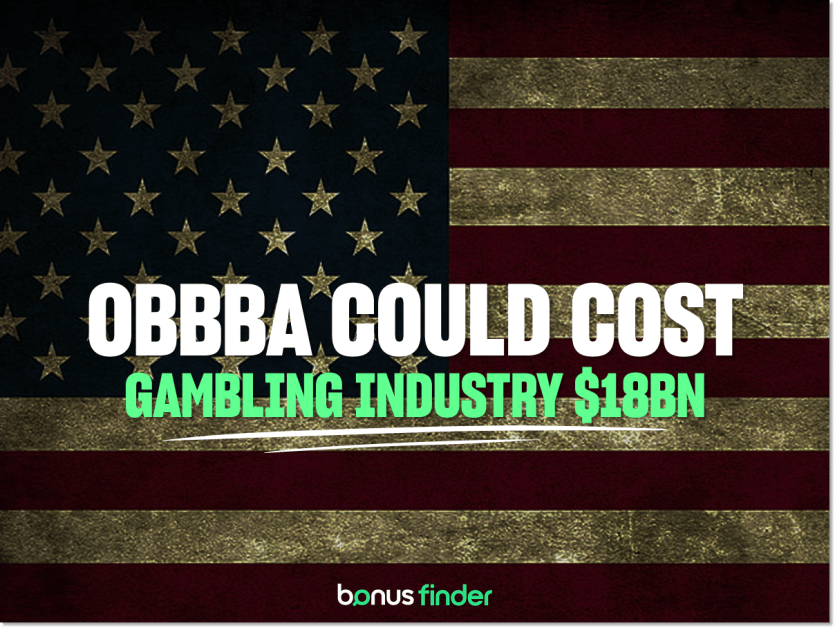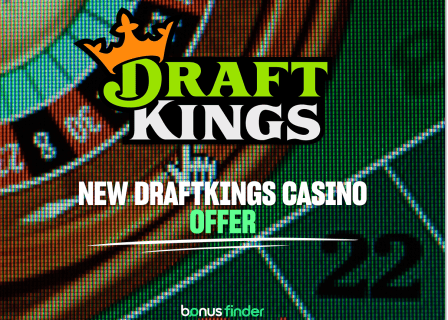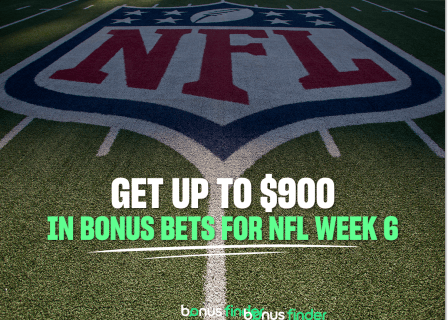A new study by American Bettors Voice (ABV) estimating the financial impact of President Trump’s One Big Beautiful Bill Act (OBBBA) has been released. It was revealed that by adding this tax, it would likely push away the biggest online casino and sports bettors to offshore black market operators.
The report focuses on an OBBBA-imposed provision that will only allow bettors to deduct up to 90% of gambling losses from taxes, down from the existing 100% limit. This stipulation will take effect on January 1, 2026.
Titled ‘The OBBB Gambling Tax Provision: An Existential Threat to Sports Betting‘, the ABV analysis uncovers which domestic markets are projected to be hardest hit by Trump’s revamped annual levies – with conservative, moderate and severe forecasts included.
According to the group’s conservative model, the industry is expected to shed at least $18bn by 2028.
How does the OBBBA impact the gambling industry?
Among several pieces of legislation packed into the OBBBA was a motion to limit the maximum amount of gambling-induced losses an individual can deduct from end-of-year tax returns. Specifically, Section 70114 of the Act outlines that players may only deduct up to 90% of gambling losses from their taxes.
ABV believes that this regulation will create a “phantom income” problem – as players will pay taxes on money they never earned.
Conservative model expects $1.5bn gross gaming revenue bleed
Author of this predictive study, Adam Robinson, branded the OBBBA’s gambling industry implications as “staggering“.
As expressed by Robinson, 80% of the regulated US gambling market is funded by just 10% of players. This deep-rooted player concentration means that a small, vital group will be targeted by these changes:
“Academic research demonstrates that just 10% of bettors generate 80% of total handle in regulated sports betting markets. The OBBB’s phantom income provision directly targets this critical customer segment – professional and high-volume recreational bettors who drive the industry’s economics.”
Consequently, operator handle is expected to drop by $18bn, gross gaming revenue to fall $1.5bn and state tax revenue to diminish by $450m. More severe projections anticipate up to $48bn in annual handle losses.
These figures stem from the aforementioned phantom income – which could create “effective tax rates exceeding 264%“.
Equally pressing is the matter of migration. As stated by the ABV, players may seek alternative, offshore and unregulated markets in an effort to avoid the significant duties presented by the OBBBA.
New York hit hardest in ABV-led projections…
State-by-state losses are seen across the board, with 10 regions noted as taking the most significant impact.
New York tops this ‘Revenue Impact’ list – as conservative forecasts detail a $129m dip and severe predictions outline a $345m loss.
Also on the docket for the nation’s highest losses are Illinois ($41m – $109m), New Jersey ($16m – $42m), Pennsylvania ($22m – $59m) and Ohio ($20m – $53m).
Even as the study rounds out the top 10, Michigan’s gambling market erosion ranges from $4m to $12m. In total, the worst-hit states could see cumulative revenue reductions of $716m.
Operators also on the revenue chopping block; FanDuel most vulnerable
The ABV assessment extends beyond the national and state impact, as several leading gambling corporations are also spotlighted.
Of the five named operators in this report, FanDuel is projected to absorb particularly noticeable ramifications – with $7.2bn to $19.2bn of the firm’s revenue now at risk. Moreover, EBITDA could suffer by up to 20%.
DraftKings is next in line, at a conservative revenue hit of $6.3bn. Should ABV’s extreme forecasts come to fruition, the Boston-based organization could endure a $16.8bn fall.
BetMGM and Caesars should prepare for over $1bn in losses, while ESPN Bet’s EBITDA impact (35% – 50%) stands head and shoulders above its competitors in terms of holistic risk.
The study also points to each firm’s “VIP dependency” – which describes the importance of ‘whales’ and consistent players on the same platform. Four of the five are marked “very high” on this metric, ESPN Bet being the sole outlier, listed as “extreme.”
Legislative action unlikely to mitigate player exodus
As per the ABV report, 2028 is the point at which the market finds a “new equilibrium” and finally settles.
By that juncture, cumulative migration shall sit at 40%, the market will have endured $48bn in handle impact and GGR will crumble by $4.1bn. Further, state tax impact will cross $1bn for the first time since OBBBA changes became legal.
Although modeling suggests that there is a 70% probability for legislative action during the first half of 2027, cumulative migration projections continue to rise steadily beyond that point.
As such, the pending FAIR Bet Act and imminent House Ways and Means Review represent the industry’s best chance at overturning these tax-focused measures.
Lawmakers do not “fully understand” US gambling industry, say ABV
In a statement criticizing policymakers, Robinson articulates what the ABV perceives as a lack of industry comprehension among legislative officials:
“This entire ecosystem rests on a foundation that few policymakers fully understand: the extreme concentration of betting volume among a tiny fraction of customers.”
Robinson continues: “This provision, designed to raise $1.1bn in federal revenue over eight years, fundamentally misunderstands the sports betting market structure and threatens to trigger an industry-wide crisis.”
Bettors face “economic devastation” as a direct result of these tax modifications – which have been enacted to accrue $1.1bn in additional federal cash flow over eight years.
The ABV argues that the OBBBA reduces the value proposition of traditional gambling markets, as “owing taxes on fictional income” will eventually deter high-volume customers.
And it is high-volume individuals who maintain balance in the modern industry, says Robinson: “These high-volume recreational bettors provide the stable, predictable revenue that allows operators to offer competitive odds and absorb the occasional large wins from skilled players.”
ABV models predict that the departure of this player profile would fundamentally alter the way businesses approach the gambling scene.
What’s next for the US gambling industry?
Analysts evaluating the US market for ABV foresee major player groups retreating from the traditional gambling industry to steer away from “phantom income” duties.
Whilst offshore platforms are expected to benefit from a new wave of players seeking non-invasive tax stipulations, domestic prediction operators, like Kalshi, stand as another realistic option.
Predictive markets are regulated by the Commodity Futures Trading Commission (CFTC), not subject to the OBBBA’s impending 90% loss deduction amendment and support sports-based outcomes.
Additional advantages are also on the table for players at prediction sites, as explained by ABV: “CFTC regulation enables 50-state operation versus state-by-state licensing for sportsbooks. Age requirements drop to 18+ versus 21+ in most gambling jurisdictions.”
If the analysis undertaken by ABV is accurate, the domestic gambling industry could sit on the cusp of a brand-new horizon. All will become clear between now and 2028.









